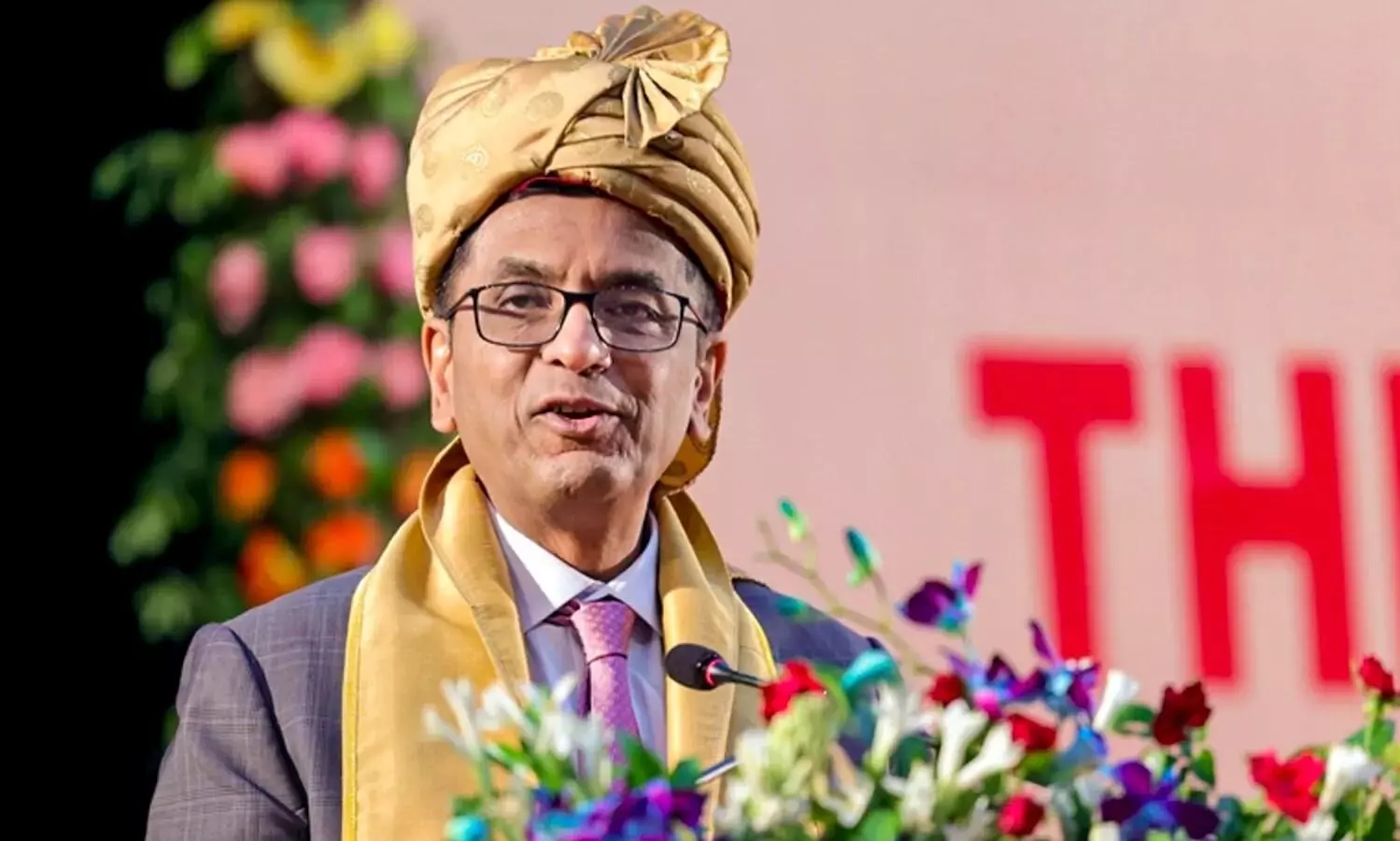
CJI calls for legal education in regional languages to enhance justice delivery
text_fieldsChief Justice of India D.Y. Chandrachud, during the inaugural address at the National Conference of the District Judiciary in New Delhi, highlighted the significance of legal education in regional languages as a means to disseminate justice more effectively by enabling new generations of lawyers to argue in their mother tongues.
In his speech, the Chief Justice highlighted the adoption of technology in the judiciary, particularly noting the translation of Supreme Court judgments into all constitutionally recognised languages.
Currently, 73,000 translated judgments are available to the public, reflecting a concerted effort to make legal decisions more accessible to a broader audience. This move is part of a larger strategy to ensure that the legal system is inclusive and comprehensible to all citizens, regardless of linguistic background.
He argued for a shift in perspective, urging the abandonment of the colonial-era term 'subordinate judiciary' in favour of recognising the district judiciary as the backbone of the legal system.
The Chief Justice pointed out the significant challenges faced by the district judiciary, including the inability of many citizens to afford legal representation, a lack of awareness of statutory rights, and geographical barriers to accessing courts.
He stressed that the quality of justice delivered at the district level is a crucial test of the judiciary's accountability to society. The conditions under which justice is administered directly impact public confidence in the legal system, making it imperative for district courts to maintain high standards.
Chandrachud also explored the role of judges in society, noting that they have the power to influence not only the legal profession but also the broader societal landscape. He emphasised that judges must recognise their role as public servants, responsible for addressing the real-life issues of those who appear before them. The challenges judges face, including the emotional toll of dealing with cases of suffering and injustice, were acknowledged, with the Chief Justice highlighting the need for greater attention to the mental health of judicial officers.
The changing demographics of the judiciary were also a focal point of the address, with Chandrachud noting the increasing number of women joining the district judiciary. In several states, women now make up a majority of newly appointed civil judges.
The Chief Justice expressed optimism that these women would become mentors and leaders within the judiciary, contributing to its evolution and strengthening its role in society.
Chandrachud acknowledged the improvements in the conditions of service for the district judiciary and called on judicial officers to give back to society. He reminded them that their primary purpose is to serve the citizens, and urged them to fulfil this responsibility through their daily work, thereby reinforcing the judiciary's commitment to justice and equality.























